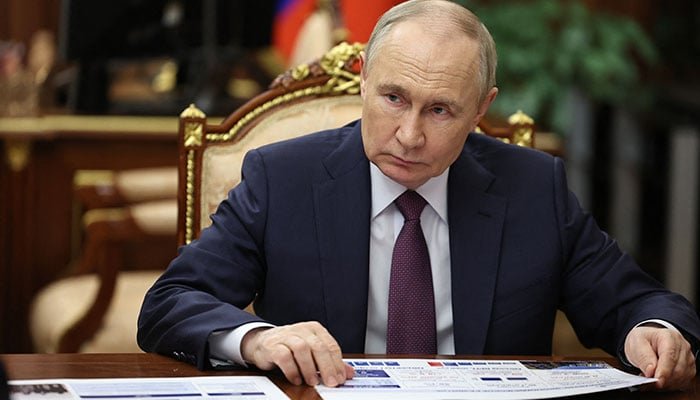Speaking in St. Petersburg, President Vladimir Putin declined to comment on the possibility of Israel and the United States assassinating Iran’s Supreme Leader Ayatollah Ali Khamenei. He emphasized the strong support for the Iranian leadership within the country.
This response came after Israeli Prime Minister Benjamin Netanyahu publicly suggested that Israel’s military actions could lead to regime change in Iran. Adding to the tension, US President Donald Trump stated earlier in the week that the US knew Khamenei’s location but had no immediate plans to target him.
When asked directly what Russia’s reaction would be if Israel, with US assistance, were to kill Khamenei, Putin refused to speculate, stating, “I do not even want to discuss this possibility. I do not want to.” He acknowledged hearing the remarks but reiterated his unwillingness to comment.
Instead, Putin highlighted the internal cohesion within Iran despite its complex political landscape. He suggested that all parties should strive to de-escalate the conflict and find a solution that safeguards both Iran’s right to peaceful nuclear energy and Israel’s right to secure its borders.
Putin’s comments were made amidst growing concerns about potential US involvement in Israeli strikes against Iranian nuclear and missile sites. Reports indicated that residents were leaving Tehran as the air assault entered its sixth day. Putin mentioned being in contact with both Trump and Netanyahu, sharing Moscow’s proposals to resolve the conflict while ensuring Iran’s continued access to civilian nuclear energy.
Regarding regime change in Iran, Putin urged caution, emphasizing the need to carefully consider whether such actions would achieve the desired outcome. He also pointed out that Iran’s underground uranium enrichment facilities remain untouched.
Putin advocated for a peaceful resolution, stating, “It seems to me that it would be right for everyone to look for ways to end hostilities and find paths for all parties to this conflict to reach an agreement. In my opinion, in general, such a solution can be found.”
When questioned about providing Iran with weapons for defense against Israeli strikes, Putin clarified that the strategic partnership treaty between Russia and Iran doesn’t include military cooperation, and no formal request for assistance has been made.
Meanwhile, Russian Deputy Foreign Minister Sergei Ryabkov urged the US to refrain from attacking Iran, warning of severe destabilization in the Middle East. A Russian Foreign Ministry spokeswoman also cautioned that Israeli strikes on Iranian nuclear facilities could lead to a nuclear disaster.
Putin stated that Israel has assured Moscow that Russian specialists working on the Bushehr nuclear power plant would not be harmed in any air strikes. He also reiterated Russia’s strong relationship with Iran and its commitment to safeguarding Iran’s interests in the nuclear energy sector.
Russia has proposed taking enriched uranium from Iran and supplying nuclear fuel for its peaceful energy program. Putin concluded, “It is possible to ensure Iran’s interests in the field of peaceful nuclear energy, and at the same time, to address Israel’s concerns about its security. We have outlined them (our ideas) to our partners from the USA, Israel and Iran.”


